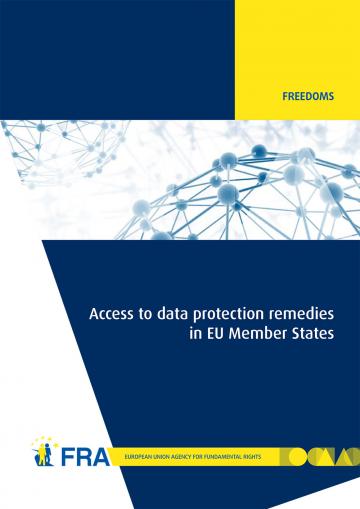EU justice chief accuses bloc of hypocrisy in data privacy debates
Published time: January 29, 2014 01:05

Viviane Reding, a vocal critic of American cyber surveillance, lashed out against EU member states’ reaction in wake of Edward Snowden revelations, urging the bloc to protect citizens’ private information and seek more legal assurances from Washington.
“There's been a lot of hypocrisy in the debate,” Reding said at the Centre for European Policy Studies in Brussels on Tuesday. “If the EU wants to be credible in its efforts to rebuild trust, if it wants to act as an example for other continents, it also has to get its own house in order.”
“The EU itself should also look carefully at some of its [data protection] laws. Neither the Commission, the Council, nor the European Parliament can be proud of the Data Retention Directive.”
The Directive requires telecom companies to store all telephony metadata, including geo-location data. Criticizing some aspects of the Directive, Reding said that the data “is kept for too long, it is too easily accessed and the risk of abuse is too great.”
“One cannot simply use ‘national security’ as a trump card and disregard citizens' rights. That is what others used to do. The European Data Retention law needs a health check. The EU Charter of Fundamental Rights is the medicine,” she told the audience in Brussels.
Read More Here
.....
Citizens require efficient and accessible protection against data protection violations
People
across the EU have become victims of data protection violations brought
on by the widespread use of information and communication technologies
by public and private bodies. Web-based activities, direct marketing,
and video surveillance account for most data protection violations.
The latest report from the European Union Agency for Fundamental Rights (FRA), ‘Access to data protection remedies in the EU Member States’, reveals victims’ lack of understanding and awareness about data protection and the authorities that serve to help them. The report findings also underline the urgent need for the EU’s reformed data protection rules to come into effect.
“Today it is too easy to simply collect and abuse the personal data of Europe’s citizens. This infringement of rights can have a profound effect on the victims of data protection violations,” says FRA Director Morten Kjaerum. “It is now time to give power to the data protection authorities to help counter these violations so victims can receive adequate redress.”
“In the European Union data protection is a fundamental right. We must make sure that this right is protected and that citizens can enforce it,” said European Commission Vice-President Viviane Reding, the EU’s Justice Commissioner. “As the report from the EU Fundamental Rights Agency shows, today, many citizens don't know where to go to if their data has been misused. This is not good enough. The Commission’s data protection reform proposals will make life easier so citizens can always address their local data protection supervisor. I hope ministers will follow the European Parliament's lead to swiftly enact the data protection reform that will improve citizens' rights.”
Interviews with victims have shown that most victims of violations turn to data protection authorities. They often do this to ensure similar violations do not reoccur rather than to seek financial compensation. Only in exceptional cases do they go through courts. Court procedures were viewed as being too complicated, costly and time consuming. The lack of legal assistance and of data protection specialists as well as under resourced data protection authorities and intermediary organisations were also identified as concerns. In addition, information about data protection procedures and remedies was found to be lacking.
The report shows that across EU Member States data protection authorities can issue orders to rectify violations and impose sanctions ranging from warnings and fines to the revocation of licenses. However, the size and duration of these sanctions can vary significantly from country to country. In almost all Member States, criminal sanctions can also be imposed, in the form of a fine or imprisonment but again there are large national differences in the duration of sentence and size of the fine.
Read More Here
.....







No comments:
Post a Comment
Hello and thank you for visiting my blog. Please share your thoughts and leave a comment :)